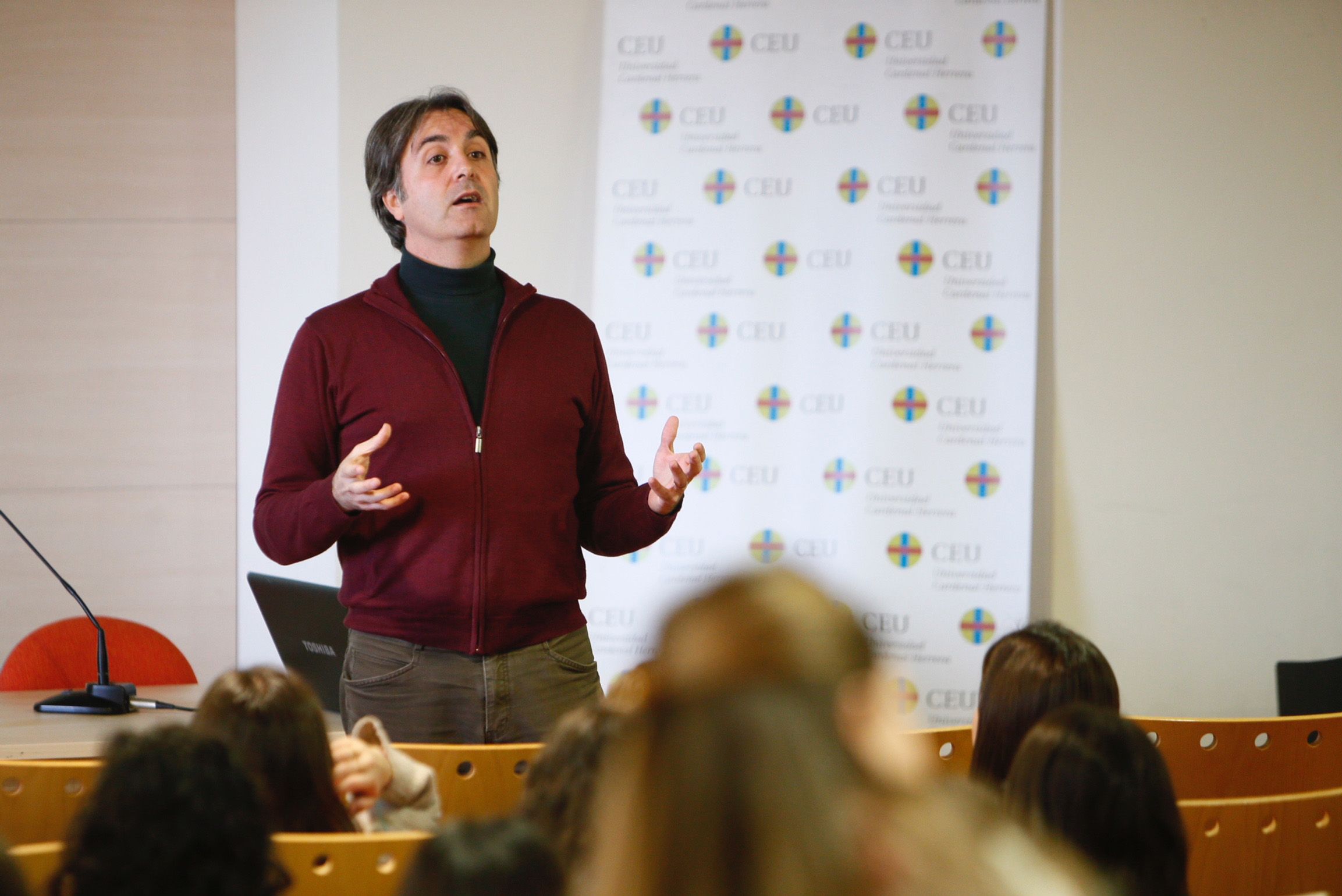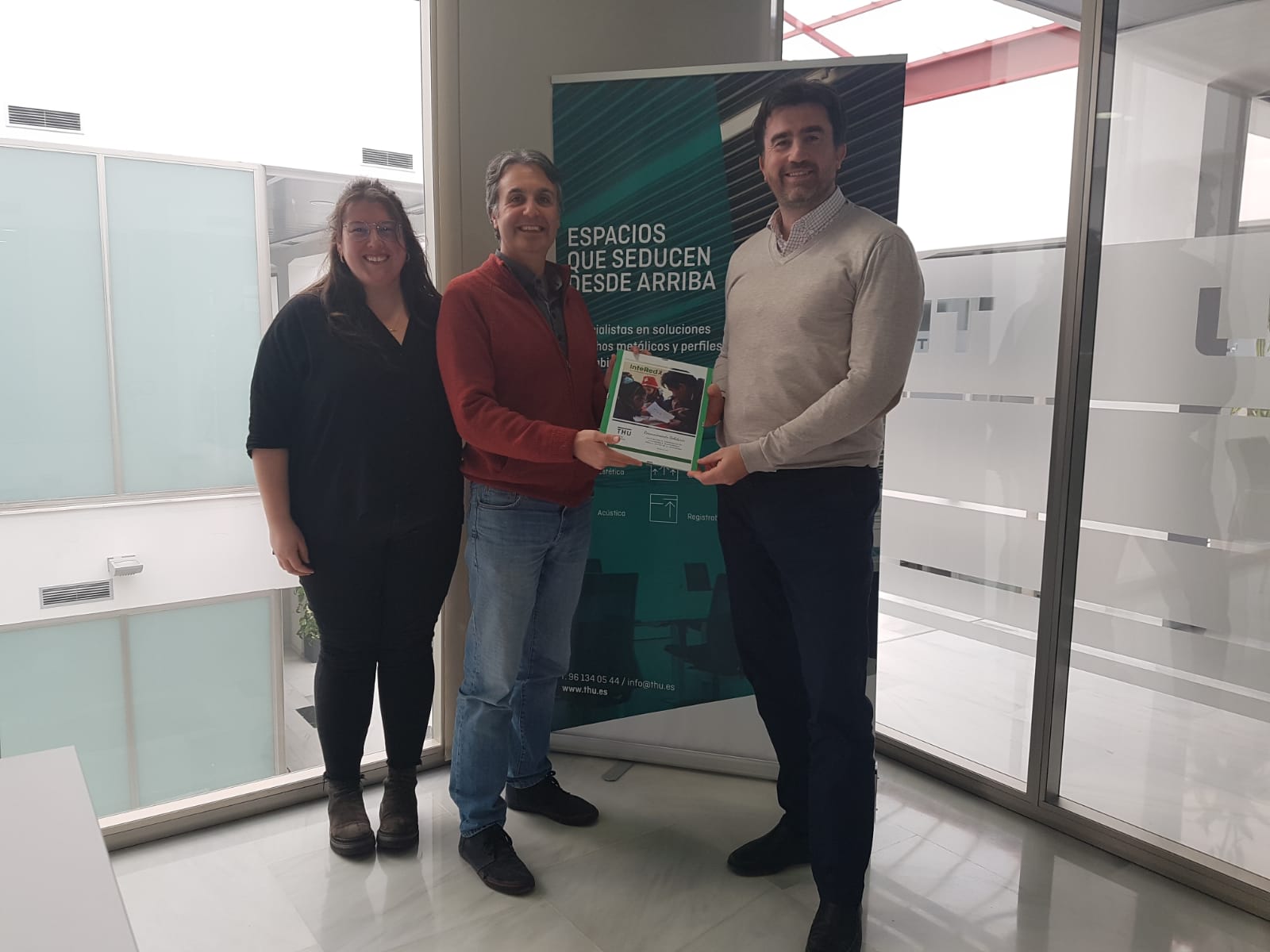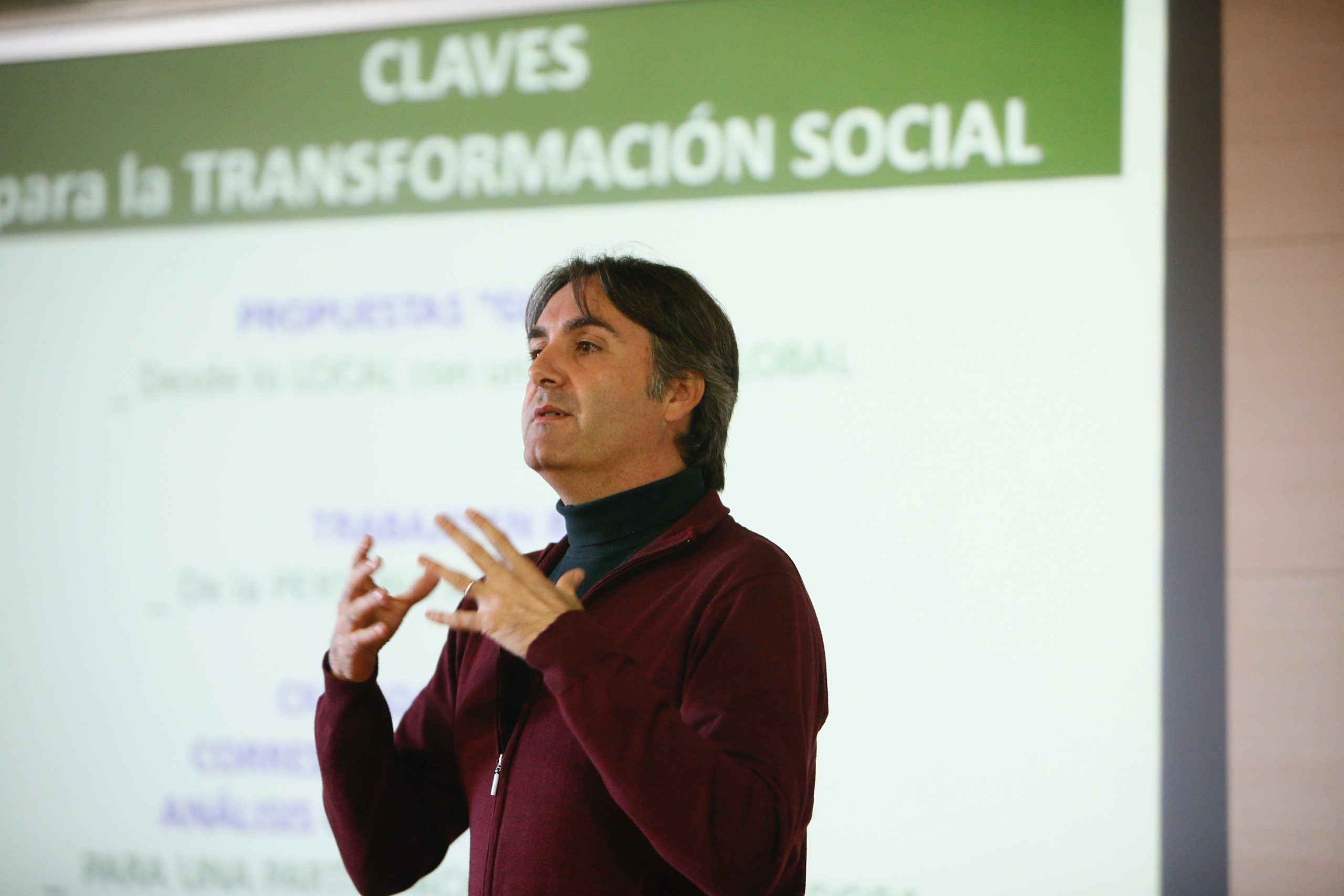- Eduardo García Ribera, Head of Business Partnerships at Fundación InteRed ONGD and an expert in companies’ social transformation, was a speaker at the World Watchers event at CEU UCH.

In all his public appearances, Eduardo García bangs the same drum: how important it is to make the UN’s Sustainable Development Goals a part of every company’s strategy. That’s what he did during his talk at CEU’s Sustainability Week, where he showed how SMEs can contribute positively to society while achieving their main business objectives. And this is also an area in which universities have much to contribute, according to this CEU Law graduate. Students can be the drivers of change too.
You’ve said that you support the creation of both inward and outward transformative processes for organizations. What do you mean by that?
I think we’re all agreed that there are many things in the world that need changing. We’re not taking good care of the planet – the thing that, in the end, is what is keeping us all alive. There are too many people suffering from poverty, hunger and easily treatable diseases. Too much unemployment. To change this, we need to get everyone involved, governments, the general public, universities and research organizations. And business too. That’s the view of the United Nations and that’s what the Sustainable Development Goals and the 2030 Agenda are all about.
You’ve stressed the importance of “bringing people and institutions together to work for the common good and build a better world and society”. What can or should SMEs do about sustainability?
SMEs do and have done a lot of socially responsible work. Small and medium-sized companies have always contributed positively to the context they are in. There are so many examples of SMEs supporting their area’s sports club, or the local festivals, or partnering up with social organizations and so on. They’ve always done that – it just wasn’t called CSR. Maybe they were the first to ‘do’ sustainability. Now we dress it up, we reflect on it more, there’s more of an intellectual depth and we call it corporate social responsibility, but in essence it’s the same thing: to go beyond what is legally necessary and contribute to the society in which the company is embedded. There’s a lot that SMEs can do because they know their own context so well.

The importance of making the SDGs a part of CSR
Can the EU’s new Green Taxonomy help companies make the SDGs a part of CSR?
Of course. The European Union is taking some interesting steps forward in this respect. For me, this is the future. The transition towards a green economy is absolutely necessary and cannot be delayed. The EU directives will probably mark the way forward and that could be a good thing, especially if it’s linked to other issues such as social justice.
Do you think it’s important to combine CSR and the SDGs with companies’ general business strategy?
It’s crucial to ensure that consistency within the company. To really make you CSR approach transformative, it must be consistent with the company’s overall business strategy and be present and influential in across every area and department.
What should organizations, companies and institutions do to increase the visibility of their sustainability activities, as a way of raising public awareness?
We need to listen to what people say, what they want and what they are interested in. We have to work together more, something which is part of the UN’s Goal 17, regarding building partnerships. It’s not about creating some of kind of smokescreen or doing “greenwashing”, but about being transparent and telling people about the good things we do. But we also need to talk about areas for improvement, especially in order to find partners who can help us improve. We need to do much more to encourage this kind of mutual support.
CSR during a pandemic
Deloitte’s recent report on companies’ social impact in Spain found that the main investments in 2019 focused on education, health and social welfare. Do you think that we’ll see roughly the same distribution now or that, given the current health crisis, we’ll see a switch in some areas?
Logically, given the situation we’re in, the most visible things are health-related. But, as I see it, it shouldn’t be about following “fashion” or what’s “hot” at the current time, but about each company focusing on how it can best make a contribution and thinking about what areas its contribution can really stand out and make a difference. There’s no shortage of important issues.
Based on your experience, how can society and individuals come together and increase the work being done on sustainability?
We have to be more demanding. Surveys show that increasing numbers of people want companies to act ethically. They want their favourite brands to be truly committed to resolving the great problems affecting the world. We know, from these same surveys, that almost three out of every four people are prepared to pay more for a product if they know that, by doing so, they are contributing to a humanitarian or social cause. The general public’s ethical conscience is and will continue to be the wind in our sails that we need, pushing us towards greater commitment to avoiding negative impacts on our environment.
Greater social commitment
What can the University do to raise student awareness of sustainability issues?
Universities are the key to driving the reflection we need. I’ve been lucky enough to sit down with academics who are experts in these issues and I’m convinced that they have an indispensable role to play. They are educating the next generation of business and social leaders and so it’s crucially important that social and environmental issues are present in all study programmes. Research, education and awareness-raising activities in respect of these issues must have great prominence at university. And this should happen with the support of the other stakeholders in development: companies, social organizations and government. We have to use research and put it to practical use as soon as possible. Again, “multi-stakeholder partnerships” are the key.
What benefits do companies that work with Fundación InteRed ONGD gain?
There are many. InteRed has almost thirty years’ experience working on issues such as education and gender equality. We’re one of the few NGOs to be rated as “qualified” by the Spanish government’s international development agency (Agencia Española de Cooperación Internacional) and we have been accredited by the Fundación Lealtad. What this means is that our work is transformative, effective and efficient. And that’s a good reason to trust InteRed. And we also help companies to develop their corporate social responsibility strategy, supporting them to ensure that they follow the sustainability path, the one we all need and want.
Is there more to it than just tax breaks?
Apart from the tax breaks, working with InteRed will mean you’ll feel supported during the process of transforming your company into an organization in which ethics, shared responsibility and stakeholder participation are at the heart of your business strategy. We want to make a real contribution and move towards a situation where there are more companies with this outlook.







